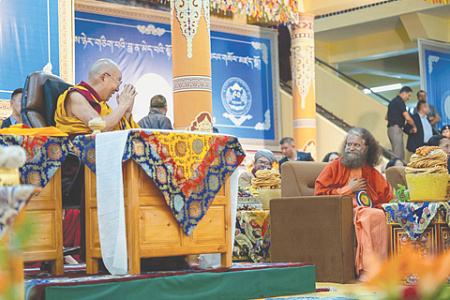
As the Dalai Lama approaches his 90th birthday on July 6, the world’s attention is fixed on the Indian mountain town of Dharamshala. A pivotal Tibetan religious conference is underway, fueling intense speculation that the spiritual leader will soon announce his plan for succession, a decision poised to trigger a major spiritual and political confrontation with China.
The core of the impending crisis lies in a clash of tradition and political power. To preempt Beijing’s control, the Dalai Lama may break with centuries-old custom by naming his own reincarnation. China, which views the Nobel laureate as a political exile, is adamant about managing the process itself, raising the specter of two rival Dalai Lamas and a struggle for the very soul of Tibetan Buddhism.
This high-stakes dilemma is rooted in modern history. The current Dalai Lama, recognized as a reincarnation at the age of two, was forced to flee his homeland in 1959 after a failed uprising against Chinese rule. India granted him asylum, and Dharamshala became the base for what is known as the Tibetan government-in-exile. For decades, he has advocated not for full independence, but for meaningful autonomy for Tibet within China—a goal that now appears more distant than ever.
Beijing has made its intentions clear, seeking to assert its authority through historical precedent, such as the Qing dynasty’s “golden urn” ritual where a Chinese official would finalize the selection of a new leader. China has already demonstrated its strategy: after the 1989 death of the Panchen Lama, the second-most important figure in Tibetan Buddhism, Beijing installed its own candidate, who recently met with President Xi Jinping and pledged loyalty to the Communist Party.
Faced with this threat, the aging Dalai Lama has hinted at several radical departures from tradition. His successor could be identified while he is still alive, could be an adult rather than a child, or could even be a woman. Furthermore, the search could be limited to the Tibetan diaspora of roughly 140,000, half of whom reside in India, effectively bypassing the six million Tibetans living under Chinese control.
The Tibetan movement faces this challenge amidst shifting geopolitical sands. International support, particularly from the United States, has reportedly waned in recent years, leaving the diaspora more reliant on scarce private donations. Host country India walks a diplomatic tightrope, seeking to avoid provoking its powerful neighbor while making it clear it would be unlikely to recognize a Dalai Lama chosen by Beijing.
As the celebrations for his 90th birthday draw near, the entire Tibetan world awaits a definitive statement. Penpa Tsering, the head of the Tibetan administration in exile, has voiced confidence that “His Holiness will clarify the question of reincarnation.” The forthcoming announcement will not only determine the future of a global spiritual movement but also define its struggle for identity and survival in the 21st century.
